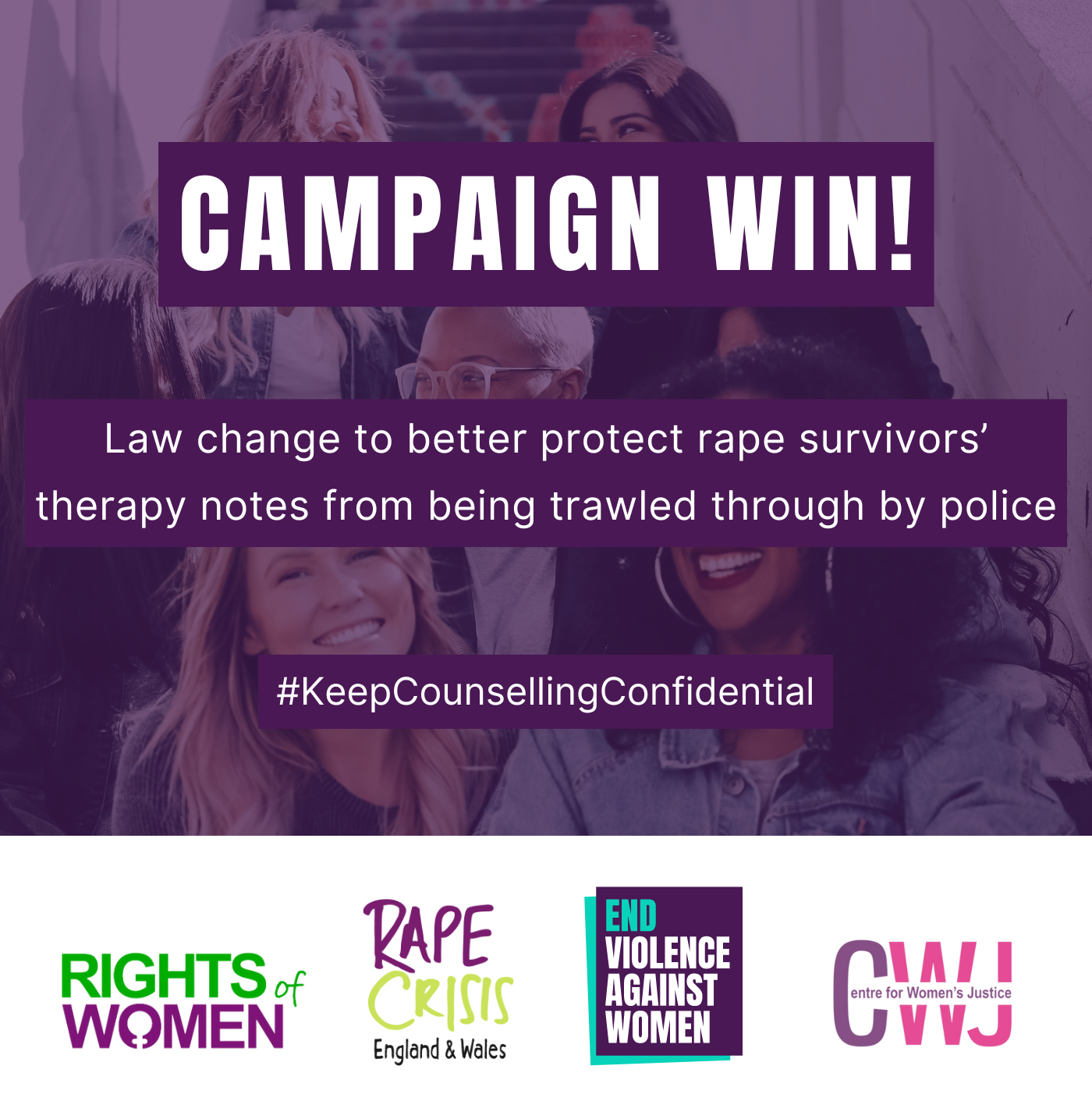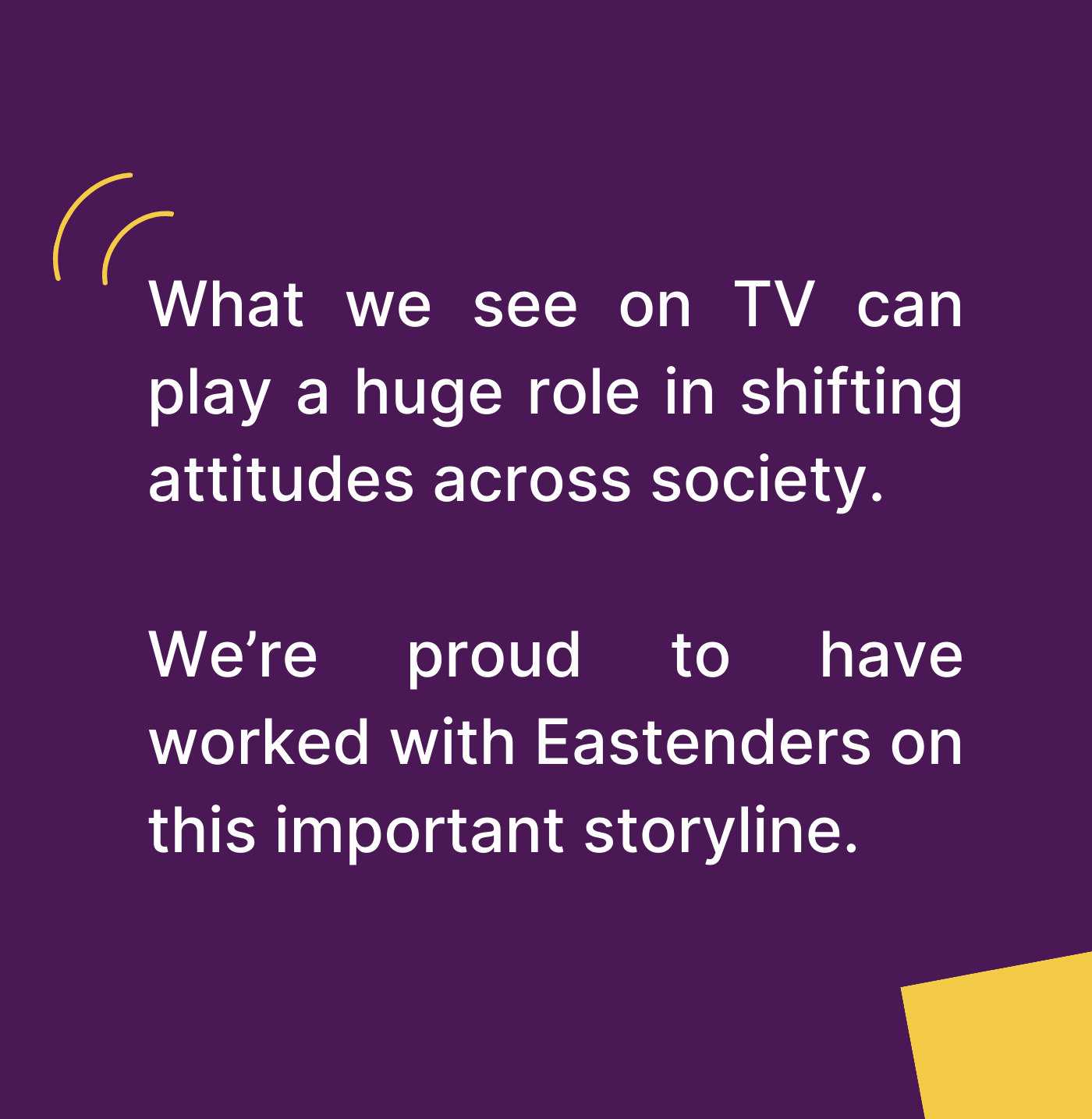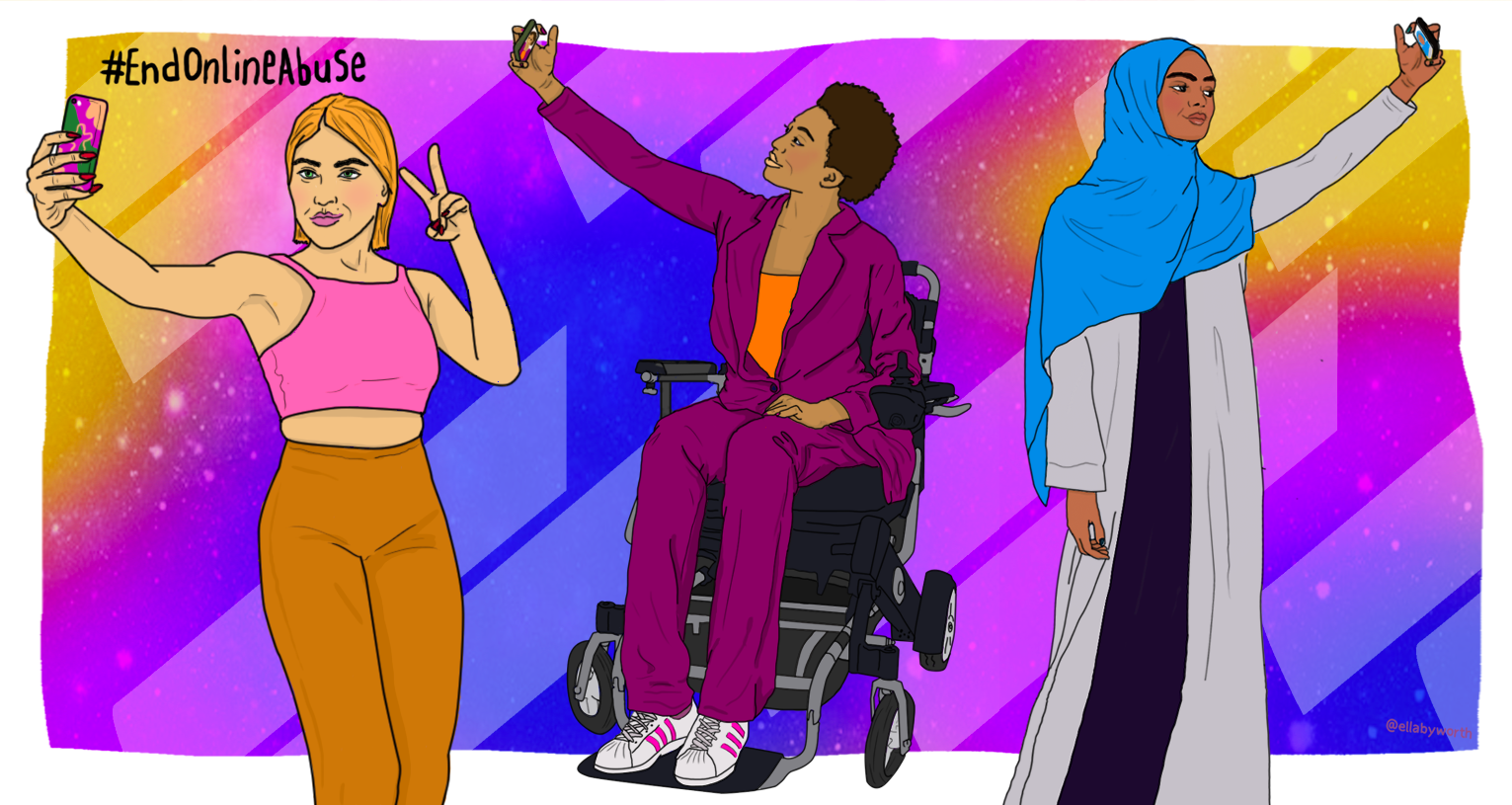 23 Apr
23 Apr
The government has today (23rd April 2024) accepted an amendment to the Victims and Prisoners Bill that will raise the legal threshold for when rape survivors’ counselling notes can be requested by the police.
The amendment was tabled in the House of Lords by Baroness Bertin, following sustained campaigning by Rape Crisis England & Wales, Centre for Women’s Justice, End Violence Against Women Coalition, and Rights of Women.
The government will now amend the Victims and Prisoners Bill, meaning there will be a change in the law that gives greater protection for survivors’ counselling notes.
When a victim of rape reports the offence to the police, they are often put in the impossible position of being forced to choose between pursuing justice or healing from trauma, due to the likelihood of their private counselling notes being shared with the police, prosecutors, defence and the courtroom.
Because of this, many choose not to have counselling. Survivors who do continue with therapy ahead of a trial are often told they must not talk about what happened to them. Both scenarios leave many without vital, life-saving support at a time when it is needed most, frequently for several years.
Raising the bar for police requests
The new Victims and Prisoners Bill will now raise the legal threshold for police requests for rape survivors’ counselling notes, in light of their uniquely sensitive nature.
Once the law comes into force, police requests for counselling notes will only be permitted where an investigating officer “has reason to believe that the information sought is likely to have substantial probative value”.
This amendment received cross-party support and is a big win for survivors’ rights to privacy, justice and healing.
We had pushed for the change in the law to also include oversight from judges over the police and prosecutor’s application of the new law, but this does not form part of the new change. This means we will have to closely monitor its implementation to ensure it delivers for survivors. Positively, the government has committed to a review after three years.
Victim-blaming at the heart of the justice system
It is also a step in the right direction towards dismantling the criminal justice system’s inappropriate focus on investigating victims’ perceived credibility rather than the actions of the suspect.
Therapy records are very rarely relevant to a case. But despite this, under the current system, counselling notes can be trawled by police and prosecutors when a survivor has discussed with her therapist what happened to her, and sometimes used to close cases inappropriately. If a prosecution is brought, the survivor’s counselling notes can be scrutinised by the defence and examined in court.
Expert organisations Rape Crisis England & Wales, the Centre for Women’s Justice, the End Violence Against Women Coalition, and Rights of Women had long called for a change in the law.
This call was supported by the British Association for Counselling and Psychotherapy (BACP), the UK Council for Psychotherapy (UKCP), the British Psychological Society (BPS) and the National Counselling and Psychotherapy Society (NCPS). A landmark survey of NCPS therapists found 9 in 10 supported the campaign and almost all (96%) support our calls for free, independent legal advice for survivors whose notes have been requested.
Ciara Bergman, CEO of Rape Crisis England & Wales said:
“After years of campaigning, we are delighted to see that the sensitive and deeply personal information shared by victims and survivors of sexual violence and abuse during counselling will finally be treated with the respect and appropriate protections that it deserves. This long-fought-for change in the law recognises the deeply harmful impact that disclosures of such records can have on victims, including making them less likely to want to proceed with prosecutions, and makes it clear that these notes must only be disclosed in very specific circumstances, and not routinely requested or regarded as a matter of course in police investigations. For victims to be able to recover from the experience of rape and sexual abuse, they need dignity, protection, justice and care. This is an important step in the right direction, and we look forward to working closely with survivors, criminal justice agencies, and the Rape Crisis network, to implement this pivotal change and ensure it is applied consistently in practice.”
Nogah Ofer, solicitor at Centre for Women’s justice, said:
“This change in the law recognises the needs of all survivors of sexual violence, most of whom will never see their cases go to court, but have been prevented from speaking openly to their therapists. It is a big step forward and we call on the police and Crown Prosecution Service to apply it consistently.”
Andrea Simon, Director of the End Violence Against Women Coalition (EVAW), said:
“This is a significant moment for rape survivors and their right to access healing and support while pursuing justice. Counselling should be a safe and private space to explore feelings and heal from trauma, and records must be protected from unnecessary and disproportionate requests during a police investigation. We’re pleased to see this now reflected far better in law, although much rests on its implementation, which we will be following closely. We call on the government to keep strengthening the Victims and Prisoners Bill by using it to guarantee rape survivors free, independent legal advice.”
Hannah Couchman, senior lawyer at Rights of Women, said:
“Our charity supports survivors of sexual violence through our legal advice lines, many of whom have been subject to re-victimisation in their struggle to access safety and justice through the police and courts. Access to non-judgemental and trauma-informed therapy is fundamental to reforming our broken justice system so survivors can live free from fear.”
Baroness Gabrielle Bertin, Member of the House of Lords, said:
“I am delighted and proud that the government has accepted these much needed amendments. If enforced properly, this should make a material difference to the wellbeing of so many victims and survivors. This government is making every effort to change the approach taken to rape survivors and investigations. This is another step in the right direction. It should never be the case that intimate and personal notes are routinely accessed by law enforcement agencies. By raising this threshold I hope many more victims will pursue both justice and support to get their lives back on track.”
ENDS
Notes to editor
- Spokespeople are available for interview, including:
- Ciara Bergman, CEO, Rape Crisis England & Wales
- Andrea Simon, Director of the End Violence Against Women Coalition
- Hannah Couchman, Senior Lawyer (Criminal Law), Rights of Women
- Nogah Ofer, Solicitor, Centre for Women’s Justice
Media contacts
Sinead Geoghegan, Head of Communications, End Violence Against Women Coalition – media@evaw.org.uk 07960 744 502
Recommended ARTICLES
 23 Apr
23 Apr
 17 Apr
17 Apr
 16 Apr
16 Apr
